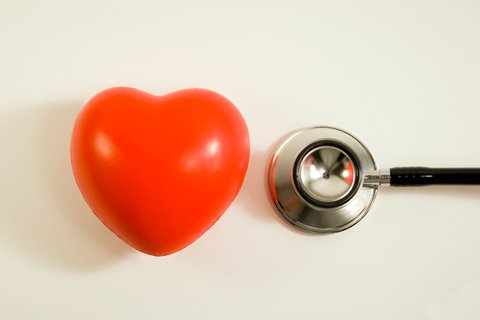In the gym world, creatine is known for its ability to boost strength and power. Sprinters take it to help them explode out of the blocks, football players take it to bulk up and bodybuilders use it to build strength and size and work harder in the gym. Creatine is one of the best supplements an athlete can take. But, did you know that it has other benefits as well?
What Is Creatine?
Creatine is a nitrogen-containing compound stored mainly as phosphocreatine in muscle tissue and the rest can be found as free creatine. Every day the body breaks down about 1-2% of the creatine pool, approximately 2 grams, into creatinine, which is excreted in urine.
Where does our body get creatine? We eat it in fish and meat. A pound of uncooked beef contains approximately 1-2 grams of creatine. And, we can also make about 1-2 grams of creatine daily from the amino acids glycine, arginine and methionine. Because dietary sources of creatine are found in animal flesh, some reports indicate that vegetarians have lower creatine stores in their muscle tissue than non-vegetarians.
How Do You Supplement?
If you want to supplement with creatine, take 0.3 grams creatine per kilogram body weight for 5-7 days (5 grams four times per day for instance) to saturate creatine stores. After this period, take 3-5 grams per day to maintain stores.

How The Bodybuilding Supplement Creatine Enhances Your Health: 
Creatine May Boost Athletic Performance
We know it can increase your one rep max bench press and make an athlete more explosive. But, did you know this could translate to enhanced self-esteem? When you look better, you feel better about yourself. And, physical activity itself is one of nature's best mood lifters.
Creatine May Help Lipid Metabolism:
The research on creatine and lipid metabolism is in the infancy stages. However, one study found that it helped decrease total cholesterol and very low-density lipoprotein cholesterol (the worst kind). Hopefully future research will examine changes in blood lipids with creatine supplementation.
Congestive Heart Failure:
Creatine may improve some of the symptoms in people with congestive heart failure. Supplementation may improve exercise tolerance and in one study, creatine given via IV improved cardiac function*.
Muscular Dystrophy:
Some studies indicate that creatine supplementation can improve muscle strength and activities of daily life in patients with muscular dystrophies.
Parkinson's Disease:
Studies in early Parkinson's disease patients indicate that creatine may help slow the rate of disease progression. Creatine may also improve strength and the results from physical therapy in patients with Parkinson's.
Additional Tips To Enhance Your Health
- Get your routine checkups from your physician and the physical exams you need based on your age. Preventive medicine works.
- Take a multivitamin. I can guarantee you aren't getting every nutrient you need from food alone (unless perhaps you are taking several fortified foods throughout the day).
- Take fish oil (omega 3 only) or eat fatty fish.
- Keep your stress levels low.
- Find a hobby you are passionate about.

 Click To Enlarge.
Click To Enlarge. Get Your Routine Checkups From Your Physician And
The Physical Exams You Need Based On Your Age.
Creatine can help you build a great body. In fact, that is the most noted benefit from consuming this supplement. It can help you work harder in the gym by providing a substrate necessary for the production of energy. And when you work harder you'll build strength, size and power. But, creatine does more than just help build a strong body.
It may help many people who suffer from debilitating diseases. In fact, clinical trials are currently examining how creatine may help people with Huntington's disease, Parkinson's disease, statin related myopathy, Amyotrophic Lateral Sclerosis and more. See www.clinicaltrials.gov for more information on these trials.
Studies indicate that creatine monohydrate is safe when taken in appropriate doses daily for a period of 1-5 years. It doesn't make sense to take it in high doses, above what your body needs, because the rest is excreted after skeletal muscle stores are saturated. There are no studies that have found it causes dehydration or other detrimental side effects in otherwise healthy people.
*Always tell your physician about any supplements, medicines and over the counter drugs you are taking (doses, frequency, and brand name). Keeping your physician informed will help her treat you.
People with kidney disease or dysfunction should speak with their physician first, prior to taking creatine. Anyone else with a particular disease mentioned here or not mentioned here should consult with his or her physician first, prior to taking creatine.
About the Author:
Marie Spano is a leading authority on translating the latest nutrition and exercise science research into real life applications. Ms. Spano has also helped pro athletes and Fortune 500 executives enhance their health and performance through sound nutrition practices. She is a regular contributor to bodybuilding.com. For more information see: www.mariespano.com
References:
- Br J Sports Med 2008;42(7):567-73.
- Am J Kidney Dis. 2010 Jan 7. [Epub ahead of print]
- Eur J Appl Physiol 2008;103(1):33-40
- Sports Applications of Creatine. In: Essentials of Sports
- Nutrition and Supplements. Humana Press 2008.
- Med Sci Sports Exerc 1999;31:1108-10.
- Neurology 2006;66:664-71.
- Neurology 2006;67:1262-4.
- Phys Sportsmed 1999;27:47-50,53-54,56,61,89.
- Clin Sci (Colch) 1996;91:113-8.
- Clin Cardiol 1996;19:699-703.
- Neurology 2003;60:500-2.
- Neurology 2000;54:1848-50.
- Neurology 2006;66:664-71.
- Neurorehabil Neural Repair 2007;21:107-15.


